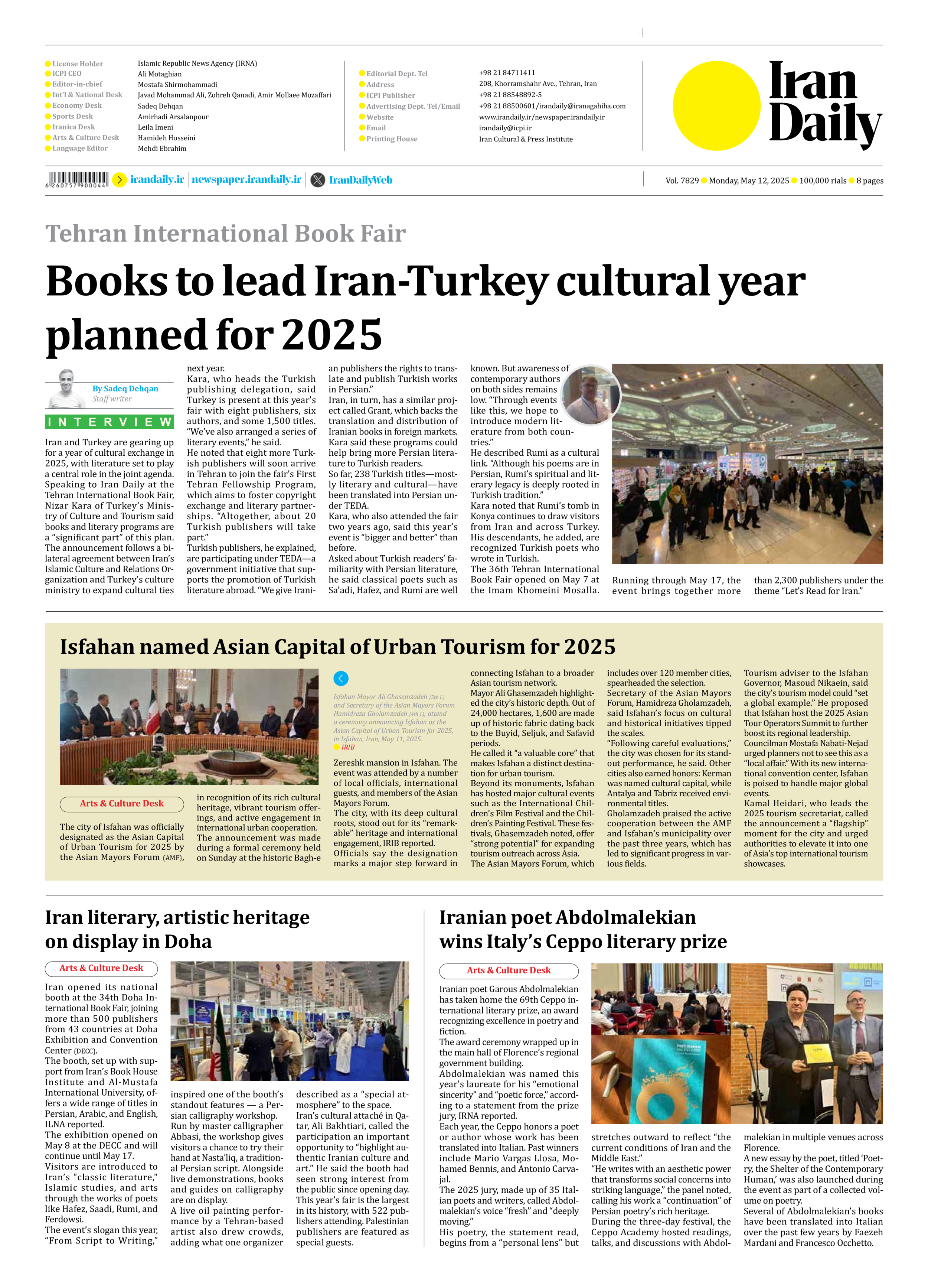
Tehran International Book Fair
Books to lead Iran-Turkey cultural year planned for 2025
By Sadeq Dehqan
Staff writer
Iran and Turkey are gearing up for a year of cultural exchange in 2025, with literature set to play a central role in the joint agenda.
Speaking to Iran Daily at the Tehran International Book Fair, Nizar Kara of Turkey’s Ministry of Culture and Tourism said books and literary programs are a “significant part” of this plan. The announcement follows a bilateral agreement between Iran’s Islamic Culture and Relations Organization and Turkey’s culture ministry to expand cultural ties next year.
Kara, who heads the Turkish publishing delegation, said Turkey is present at this year’s fair with eight publishers, six authors, and some 1,500 titles. “We’ve also arranged a series of literary events,” he said.
He noted that eight more Turkish publishers will soon arrive in Tehran to join the fair’s First Tehran Fellowship Program, which aims to foster copyright exchange and literary partnerships. “Altogether, about 20 Turkish publishers will take part.”
Turkish publishers, he explained, are participating under TEDA—a government initiative that supports the promotion of Turkish literature abroad. “We give Iranian publishers the rights to translate and publish Turkish works in Persian.”
Iran, in turn, has a similar project called Grant, which backs the translation and distribution of Iranian books in foreign markets.
Kara said these programs could help bring more Persian literature to Turkish readers.
So far, 238 Turkish titles—mostly literary and cultural—have been translated into Persian under TEDA.
Kara, who also attended the fair two years ago, said this year’s event is “bigger and better” than before.
Asked about Turkish readers’ familiarity with Persian literature, he said classical poets such as Sa’adi, Hafez, and Rumi are well known. But awareness of contemporary authors on both sides remains low. “Through events like this, we hope to introduce modern literature from both countries.”
He described Rumi as a cultural link. “Although his poems are in Persian, Rumi’s spiritual and literary legacy is deeply rooted in Turkish tradition.”
Kara noted that Rumi’s tomb in Konya continues to draw visitors from Iran and across Turkey. His descendants, he added, are recognized Turkish poets who wrote in Turkish.
The 36th Tehran International Book Fair opened on May 7 at the Imam Khomeini Mosalla. Running through May 17, the event brings together more than 2,300 publishers under the theme “Let’s Read for Iran.”







